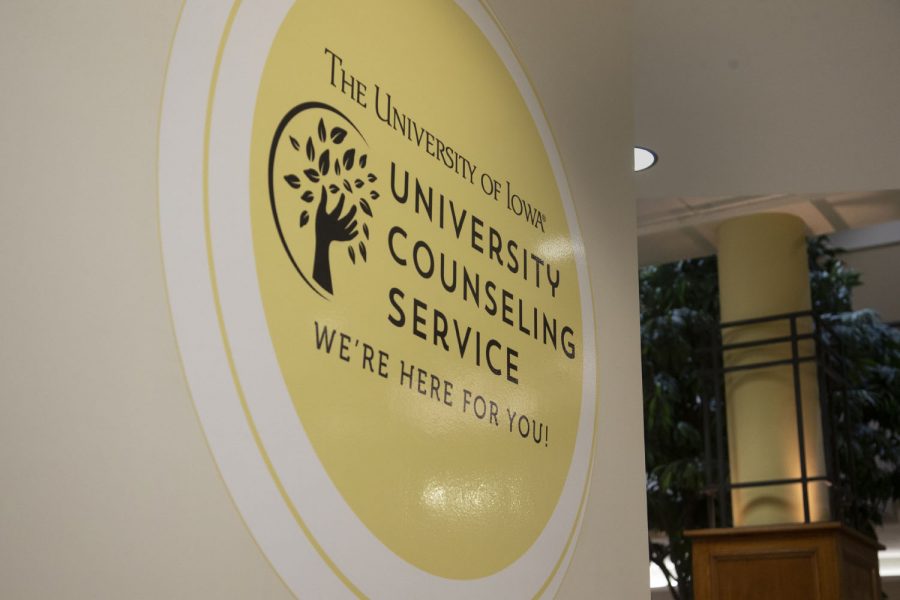Opinion | UI students need mental health training
We must work together to create an inclusive and supportive campus environment for students with mental health needs.
The University Counseling Services office is seen in the Old Capital Mall on Monday, February 17, 2020.
September 13, 2022
Students who work in resident assistance, disability programs, and other student service positions at the University of Iowa are trained in trauma-informed care practices as well as signs of mental health distress.
However, mental health training for students outside those programs is necessary to create overall campus awareness of and inclusivity for UI community members living with trauma.
There should be a priority placed on teaching trauma-informed tactics to all students to better assist those with mental health needs.
Most undergraduate major programs at the UI require general education courses. The College of Liberal Arts and Sciences (CLAS) houses the most undergraduates on campus each year.
But none of CLAS’s general education required courses solely focus on mental health crisis warning signs, care, and/or treatment.
Up to 44 percent of college students show signs of depression and anxiety. About 88 percent of undergraduates experience high to moderate stress, and 44 percent have anxiety at levels concerning enough to need treatment or talk therapy services.
When counseling and psychiatric services remain underfunded or inaccessible due to cost, time, or lack of availability, college students suffer.
Each year, approximately 1,100 college students die by suicide, but this number doesn’t account for all suicide attempts. Although an estimated 24,000 undergraduates attempt suicide each year in the U.S., this number is only an approximation considering some suicide attempts may go unreported.
Students can’t be expected to remain academically successful if their peers and professional colleagues don’t know how to appropriately react to mental health concerns and crises on campus.
Resources, including University Counseling Services, Student Health, as well as CommUnity Crisis Network are Iowa City organizations on and off campus ready to assist students and other community members in moments of crisis or when professional help is best. But mental illness advocacy and understanding is a daily action rather than simply crisis intervention.
Trauma-informed care between students can look different depending on context. Removing judgmental actions and thoughts in interactions is an easy way to leave a more positive impact on your peers, with or without considering mental health.
Leaving space for people to name their mental health needs and concerns in the classroom will hold each other accountable for any harm you or they may cause others.
My therapist at UCS and I recently discussed one thing that has positively altered my perspective as the semester starts: everyone is doing their best, but their best might not be what you think is best. But at least they are trying.
Editor’s Note: The Daily Iowan removed select paragraphs referring to a source’s mental health. The DI regrets this error.
Columns reflect the opinions of the authors and are not necessarily those of the Editorial Board, The Daily Iowan, or other organizations in which the author may be involved.



